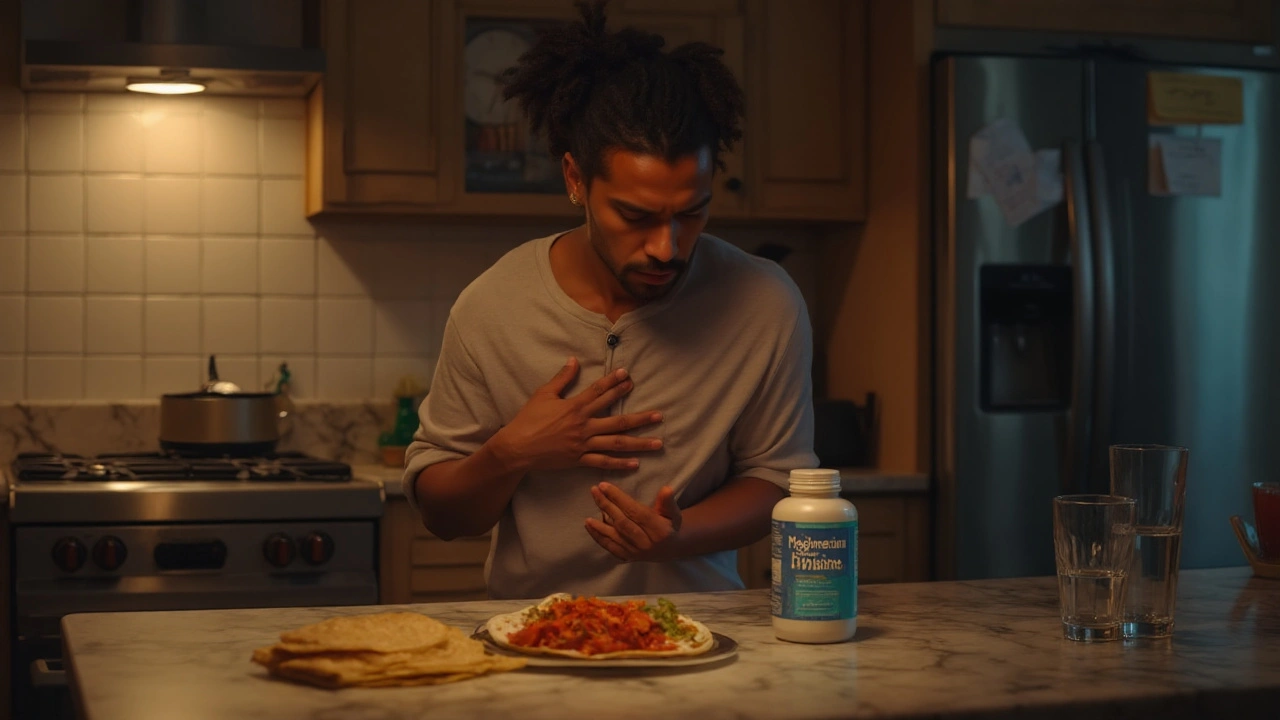GERD Basics: What It Is and How to Tame It
Ever feel a burning behind your breastbone after a big meal? That’s a classic sign of GERD, or gastroesophageal reflux disease. It happens when stomach acid slips back up into the esophagus, causing that uncomfortable fire.
Most people notice heartburn at night or after pizza, coffee, or spicy dishes. If you’re coughing, hoarse, or have a sour taste in your mouth, GERD could be the culprit. It’s not just an occasional annoyance—persistent reflux can damage the lining of your throat over time.
Why GERD Happens: Common Triggers
Several everyday habits can push acid up the tunnel. Overeating stretches the stomach, making it easier for juice to splash back. Lying down right after a meal also gives acid a shortcut.
Foods high in fat, chocolate, mint, citrus, and tomatoes often raise the risk. Alcohol and smoking relax the lower esophageal sphincter, the valve that should keep acid where it belongs.
Even tight clothing can add pressure on your belly, pulling the acid upward. If you’ve tried changing your diet and still feel the burn, keep an eye on hidden triggers like carbonated drinks or even stress.
Quick Lifestyle Fixes That Actually Work
Start by shrinking your portions. Smaller meals mean less pressure on the stomach and a lower chance of reflux. Chew slowly and put your fork down between bites to give your brain time to register fullness.
Give yourself at least three hours before bedtime to let food settle. Elevating the head of your bed by a few inches can stop nighttime flare‑ups without any pills.
Swap greasy takeout for lean proteins, whole grains, and veggies. A splash of apple cider vinegar in a salad might sound odd, but a tiny amount can boost stomach acidity and improve digestion for some folks.
Avoid nicotine and limit alcohol to a drink or two on weekends. If you smoke, cutting back or quitting can tighten that valve and reduce heartburn dramatically.
Regular exercise helps keep weight in check, and excess pounds press on your belly, forcing acid upward. Even a brisk walk after dinner can aid digestion and keep the burn at bay.
When lifestyle tweaks aren’t enough, over‑the‑counter antacids, H2 blockers, or proton‑pump inhibitors can offer fast relief. Talk to a pharmacist or doctor about the right option for you.
If symptoms linger for weeks, schedule a visit. Your doctor may suggest an endoscopy to check for damage or prescribe stronger medication to protect the esophagus.
Bottom line: GERD is manageable with a mix of smart habits and, when needed, medical help. Tune into your body, adjust your routine, and you’ll likely see the fire fade.
